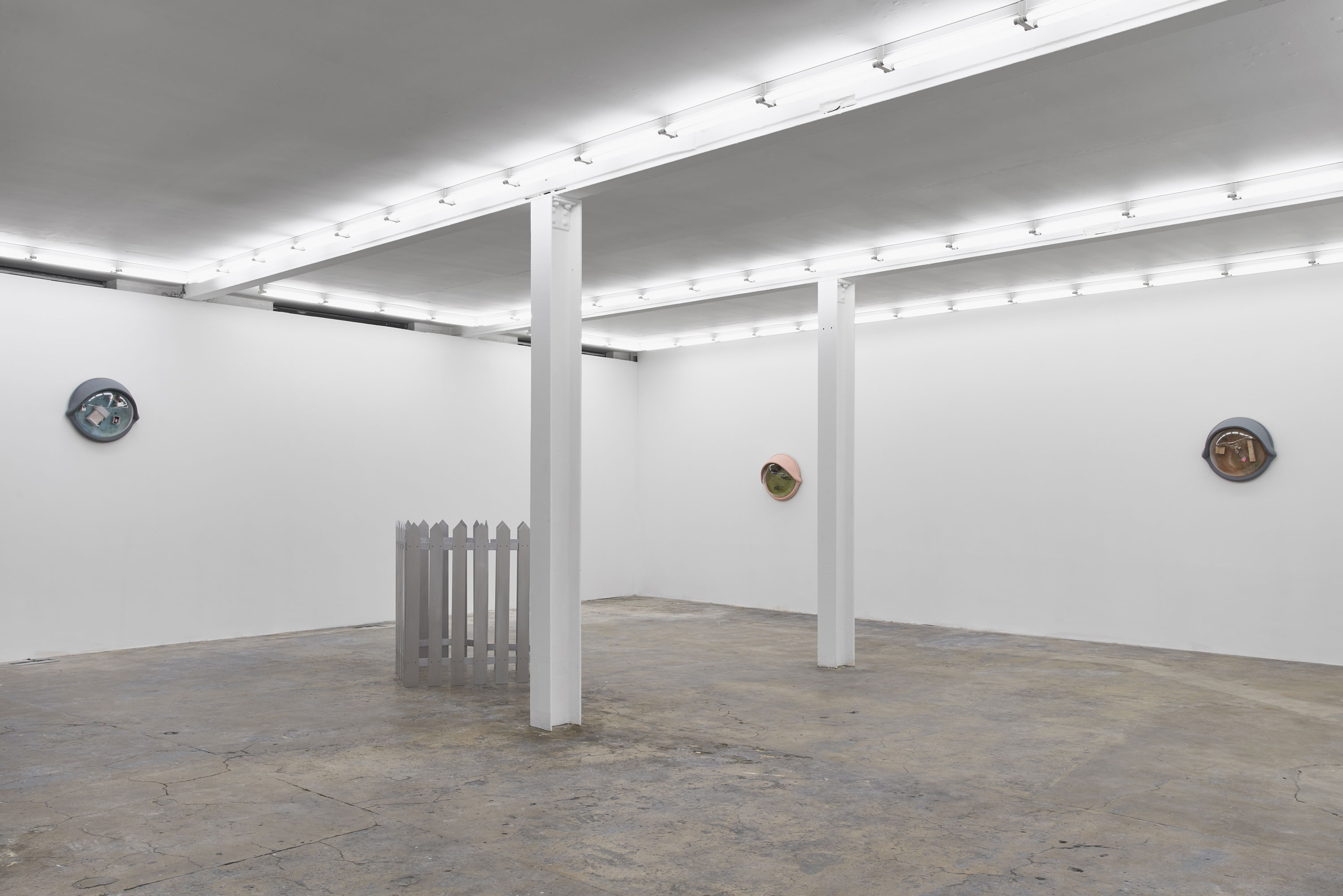ENDLESS DAYS
Orit Gat
To tell the truth, I rarely entered a friend’s home without wondering what it might be like to never leave.1
A bedroom at 11:00 am is an empty, forgotten room. The front yard with the lawn and the unravelling white picket fence is a different place at 3:00 am (are there wild animals wandering along it?) than it is at 5:00 pm (someone on a porch may be looking at it, regretting its state) or at midnight (where a teenager may be sneaking a cigarette, perhaps with a friend). The sense of time across the five rooms in Olivia Erlanger’s exhibition Home is a Body are named after a different time of day, becomes like a clock, with hours set in space rather than a continuum. The five rooms, meticulously furnished with miniatures, are stunningly intimate, yet feel like part of an endless system. Between the fake Isamu Noguchi coffee table and the pink Macbook in the living room, the branded plastic bottles of Evian water and Coca-Cola, and the books about cars in the garage, the five rooms come together not to form a house, but rather, different lives and stories, often familiar but never fully told.
A suburban view, encased, these spaces are empty, and viewers are left to imagine the bodies that do not inhabit them. These missing bodies felt more acutely since the rooms are set inside eyelid-shaped constructions, a reminder also of a surveillance camera, focused on a fixed setting, its viewpoint eerie and anchored to place. But it is the emptiness that haunts most, a reflection of the interior isolation felt by many people during the COVID-19 lockdowns. Like the sculpture of the heart-shaped white fence which can only fit one and is so sharp it may still cut whoever is standing in it, there is a special, disturbing sadness to these works, a sign of the time. Where a house becomes a cage, the suburban similarity — so often described as oppressive in popular culture — becomes another representation of repetition, of endlessness, like these days.
The quote opening this text is from an essay by novelist Zadie Smith about the intertwinement of identity and fiction. Smith writes ‘in defence’ of fiction, seeing it as a tool of imagining other ways of being in the world, exploring other senses of self. A child walking into her friend’s family home becomes her friend, or a member of that family, voraciously living all possible lives. The home, a protective element that separates the family from the world, grows porous, a place Smith’s imagination inhabits, occupies, can wonder what it’s like to never leave. When home is on everyone’s mind, where contemporary life is rife with the experience of political struggles and social isolation, questions of where and how one belongs become haunting and difficult. ‘That our griefs were not entirely unrelated’, Smith writes, where ‘related’ is both a connection and an account thereof. The idea of home is ever expanding and fiction is not an escape, but rather, a form of relating. Home is not a structure, but an idea. Just, not necessarily a positive one.
-
Zadie Smith, ‘Fascinated to Presume: In Defense of Fiction,’ The New York Review of Books (24 October, 2019). ↩

